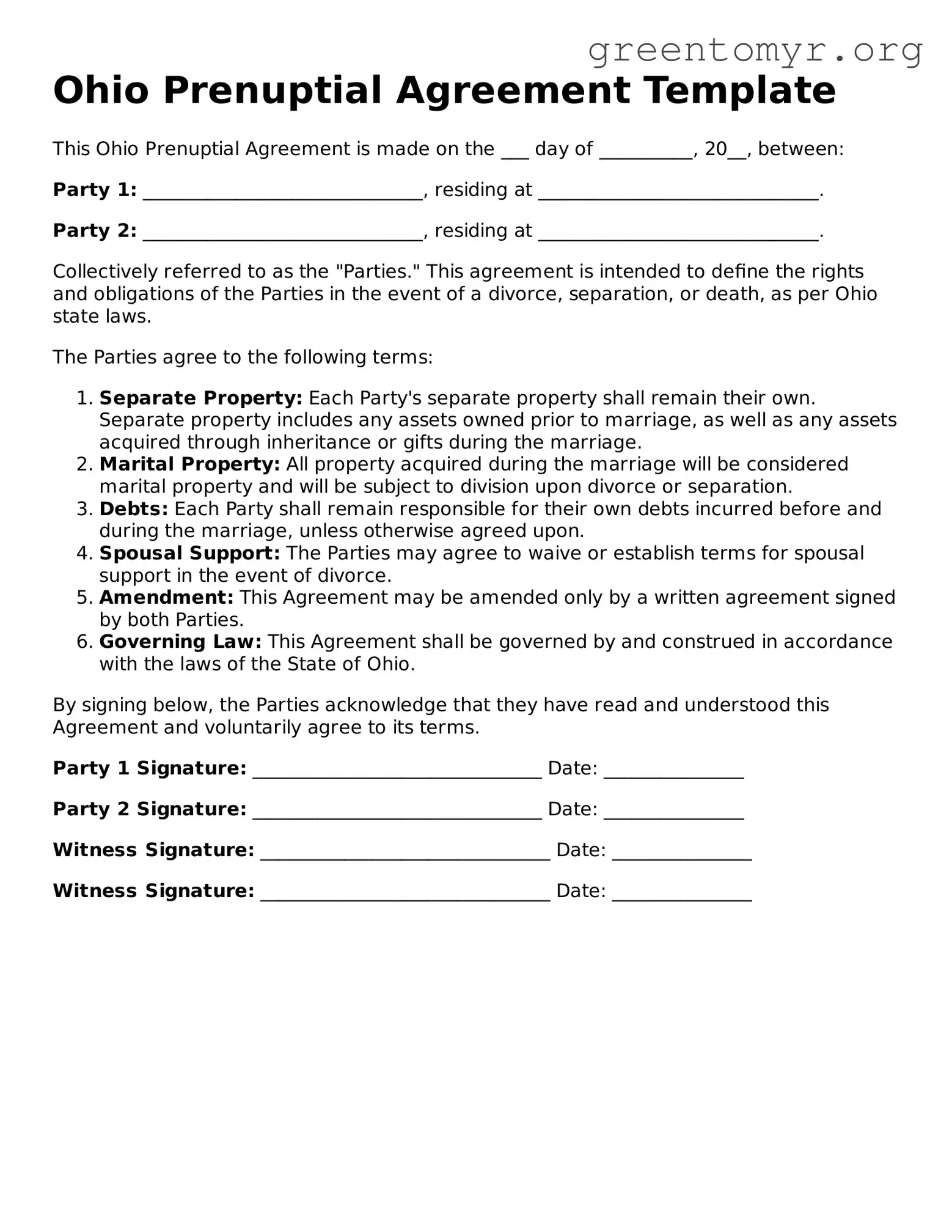Ohio Prenuptial Agreement Template
This Ohio Prenuptial Agreement is made on the ___ day of __________, 20__, between:
Party 1: ______________________________, residing at ______________________________.
Party 2: ______________________________, residing at ______________________________.
Collectively referred to as the "Parties." This agreement is intended to define the rights and obligations of the Parties in the event of a divorce, separation, or death, as per Ohio state laws.
The Parties agree to the following terms:
- Separate Property: Each Party's separate property shall remain their own. Separate property includes any assets owned prior to marriage, as well as any assets acquired through inheritance or gifts during the marriage.
- Marital Property: All property acquired during the marriage will be considered marital property and will be subject to division upon divorce or separation.
- Debts: Each Party shall remain responsible for their own debts incurred before and during the marriage, unless otherwise agreed upon.
- Spousal Support: The Parties may agree to waive or establish terms for spousal support in the event of divorce.
- Amendment: This Agreement may be amended only by a written agreement signed by both Parties.
- Governing Law: This Agreement shall be governed by and construed in accordance with the laws of the State of Ohio.
By signing below, the Parties acknowledge that they have read and understood this Agreement and voluntarily agree to its terms.
Party 1 Signature: _______________________________ Date: _______________
Party 2 Signature: _______________________________ Date: _______________
Witness Signature: _______________________________ Date: _______________
Witness Signature: _______________________________ Date: _______________
